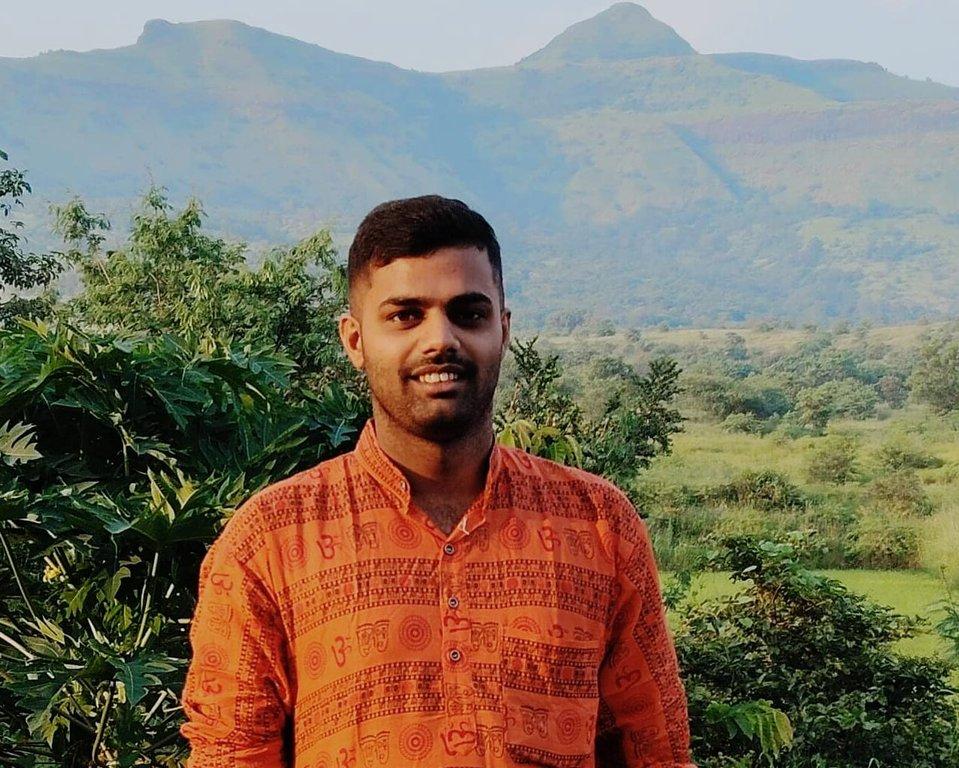Auroville Youth Camp: An Experience of a Lifetime
Mr. Krishna Kant Singh from Jamia Millia Islamia, New Delhi has shared his experience about AYC.
AUROVILLE YOUTH CAMP: AN EXPERIENCE OF A LIFETIME

Mr. Krishna Kant Singh from Jamia Millia Islamia, New Delhi has shared his experience about AYC.
Sporadic are the opportunities that transcend every boundary to become phenomena, leaving an indelible mark on mind, body, soul, and life, as a whole. Fortunate, indeed, are the people who seize such opportunities and witness those moments which are part and parcel of such opportunities. One such moment of my life is those seven days I spent at the Auroville Youth Camp amidst the serene landscapes of Auroville. This article reflects on my enriching learnings at the camp and the profound ideas that guide Auroville, and its people and have the potential to drive the human race. Auroville is a testament to Sri Aurobindo’s idea that “it is a dynamic and futuristic spirituality, synthetic and integral in character, that Bharat must exemplify and show to the world.”
Bhartiyata: The talks delivered on Bhartiyata enriched my knowledge and perspective about Bhartiyata. Bharata, Bharatiya, and Bhartiyata are not just terms. There are historical, cultural, and spiritual significance attached to them. Bhartiyata is both consciousness and action and only when there is conscious realization of the spirit of Bhartiyata and our actions reflect the spirit of Bhartiyata, can we say that we are living in Bharat as Bhartiyata. To consider Bharat as just a geographical entity reflects apathy towards our glorious civilisational past having extraordinary cultural, historical, and spiritual significance. What differentiates Bharat from the rest of the world is our worship of this sacred land and our conscious efforts to embrace our culture, heritage, traditions, customs, philosophy, values, and spiritualism. Bhartiyata connotes the spiritual unity of Bharatiyas, that is to say, that Bharataiyas, who regard Bharat as Shakti or divine entity, have consciously realized the idea of Bharatiyata in their inner-self. Bhartiyata is in the form of Nationalism if we regard Bharatiya Nationalism as Sanatana Dharma that binds our past, present, and future together in a single thread.
Prakriti: The idea that Prakriti expresses herself through us as our Swadharma is one of the basic tenets of Bhartiya culture and ecological consciousness. Prakriti worship in India mandates that our acts should be in an environmentally conscious way. Sadhana Forest in Auroville is one such example of Swadharma. It is a testament to the successful restoration and ecological revival of degraded landscapes. The environmental crisis that the world is facing today can only be overcome if we, as humans, practice swadharma to create environmental awareness and foster human unity to practice ideas that can overcome environmental crises. Dharma is correlated with ecology and both sustenance and sustainability have their roots in Dharma. There is a very popular saying among Bishnois that “Heads lost, trees saved, consider it a good deal! It is better to sacrifice your head to save a tree. Accepting price for your sacrifice becomes a stigma on your sacrifice.” To this extent, Prakriti has been revered in Bhartiya traditions.
The idea of universal life: One of the most striking aspects of the camp was our exposure to community living. Community living is not just about living together but fostering a human relationship and supporting one another. The idea of community living cultivates a shared consciousness of cooperation, mutual respect, interconnectedness, and collective approach. People from diverse backgrounds came together, engaged with each other, fostered relationships, learnt together and became witnesses to the idea of unity in diversity and human unity. The concept of the bare minimum to which we were exposed at the youth camp is one of the most enlightening experiences. The concept of bare minimum living reflects a deeper understanding of minimizing our needs and fulfilling our basic needs. It is a commitment to sustainability and cultivating a lifestyle that takes into consideration the resources and needs of future generations as well. Another concept is organic farming which is part of sustainable living practices. In Auroville, only organic products are used and it is a testament to their commitment to living in harmony with the earth. A very basic part of our life is the cutleries in which we eat and drink but if we are resolute on using reusable cutleries for life, it would make a very big difference in overcoming the environmental crisis.
This is a genuine expression of gratitude for all that I experienced, the humble people I met, the places I visited, the life practices to which I got introduced, and the divine presence I felt. As I look back at my enriching time spent at the camp, I feel fortunate and blessed to have had the opportunity to visit a place that has a spiritual essence and permeates every aspect of life. The camp was an exploration journey for me to realize the essence of conscious life. In a world full of distractions, the camp offered me moments to reconnect with people and nature, foster human relationships, and cultivate life practices that enrich my life. The teachings of Sri Aurobindo and the Mother are practical guides for us to foster universal harmony and follow the ideals and principles that give our life a purpose to work together for universal brotherhood. I am genuinely grateful to the organizers, curators, and especially, Dr. Mollika Ji for organizing such a life-changing youth camp. The Auroville Youth Camp, indeed, was a life-changing experience for me. As I continue in my life, I do so with a renewed commitment to living the ideas and principles I learned at Auroville which will inspire me to strive for a life that is not just about my individual self but the whole human race.
Dhanyavaad,
Krishna Kant Singh
(Jamia Millia Islamia, New Delhi)
No comments yet. Login to start a new discussion Start a new discussion